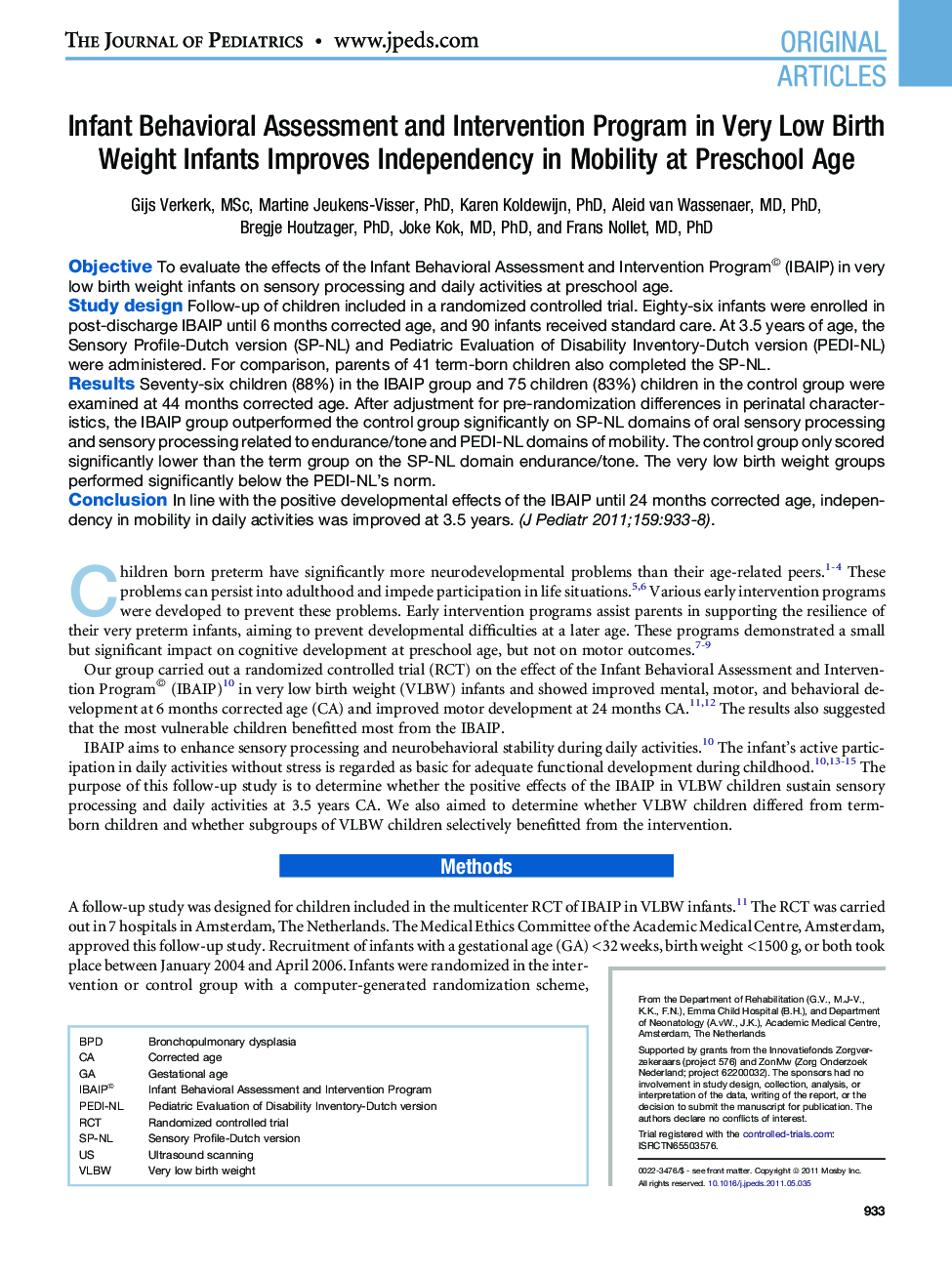| Article ID | Journal | Published Year | Pages | File Type |
|---|---|---|---|---|
| 6224418 | The Journal of Pediatrics | 2011 | 7 Pages |
ObjectiveTo evaluate the effects of the Infant Behavioral Assessment and Intervention Program© (IBAIP) in very low birth weight infants on sensory processing and daily activities at preschool age.Study designFollow-up of children included in a randomized controlled trial. Eighty-six infants were enrolled in post-discharge IBAIP until 6 months corrected age, and 90 infants received standard care. At 3.5 years of age, the Sensory Profile-Dutch version (SP-NL) and Pediatric Evaluation of Disability Inventory-Dutch version (PEDI-NL) were administered. For comparison, parents of 41 term-born children also completed the SP-NL.ResultsSeventy-six children (88%) in the IBAIP group and 75 children (83%) children in the control group were examined at 44 months corrected age. After adjustment for pre-randomization differences in perinatal characteristics, the IBAIP group outperformed the control group significantly on SP-NL domains of oral sensory processing and sensory processing related to endurance/tone and PEDI-NL domains of mobility. The control group only scored significantly lower than the term group on the SP-NL domain endurance/tone. The very low birth weight groups performed significantly below the PEDI-NL's norm.ConclusionIn line with the positive developmental effects of the IBAIP until 24 months corrected age, independency in mobility in daily activities was improved at 3.5 years.
